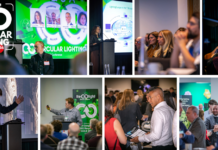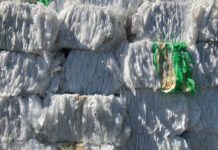
One of Indonesia’s largest Material Recovery Facilities (MRF) was inaugurated on 16 September in Songgon Municipality, in what’s suggested as a significant milestone towards establishing a circular waste management system in the country.
The initiative was led in part by Project STOP and the facility was built in collaboration with the regional government of Banyuwangi.
It will manage waste collection and sortation as well as materials to be recycled from households in the region. Its daily processing capacity is up to 84 tonnes of waste.
Those behind the initiative say it will create approximately 200 jobs by 2025 and service over 250,000 residents. By 2025, it’s intended that the MRF will collect annually 23,000 tonnes of waste, including 3,300 tonnes of plastic.
Project STOP Banyuwangi was co-founded in 2017 by waste technology firms Borealis and Systemiq, with support from National and Regional Governments, international institutions, academia and others in the private sector.
“Plastic leakage to sea, land and air can be prevented by working closely with all stakeholders,” said Ipuk Fiestiandani, Banyuwangi Regent. “Through the Project STOP Banyuwangi initiative, we work hand-in-hand to make tangible improvements to the health of the local environment and people living in Banyuwangi.”
“We hope this infrastructure can establish the implementation of a circular waste management system and become a benchmark to other regions in Indonesia.”
For the MRF’s construction, the Banyuwangi Regency Government allocated more than 1.5 hectares of land in the first phase of the project. The circular waste system is designed to support the implementation of the Banyuwangi government’s Solid Waste Master Plan, co-developed by Banyuwangi Agencies, the Clean Oceans through Clean Communities (CLOCC) Program and Project STOP.
“Since we founded Project STOP together with Systemiq in 2017, we established waste management systems in Muncar, Pasuruan and Jembrana as first phase. Based on the learnings done in the first three cities, we will now expand the reach of Project STOP to the Banyuwangi region. Beyond that, we hope that Project STOP serves as inspiration and blueprint for other projects to accelerate the establishment of a circular economy and to avoid waste leakage into the environment,” commented Thomas Gangl, Borealis CEO.
“This second Project STOP Program in Banyuwangi underscores our enduring partnership with the Regency and other local government agencies, with increased impact and benefits for the local environment and population. We intend this to be a beacon for Regencies across the country and thank our funders and partners for their ongoing commitment,” said Ben Dixon, Head of Materials and Circular Economy at Systemiq.
The state-of-the-art MRF is equipped to handle both organic and inorganic waste. Organic waste will be processed into compost, while inorganic waste will be sorted and transferred to the recycling industry.
Project STOP Banyuwangi has been undertaken in collaborations and close partnerships with various Indonesian government bodies, such as the Coordinating Ministry for Maritime and Investment Affairs (CMMAI), the National Ministry of Environment and Forestry (MoEF), the Banyuwangi regency government and Project STOP Strategic Partners including the Norwegian Government, Accenture, Borouge, USAID and Partnering for Green Growth and the Global Goals (P4G).







